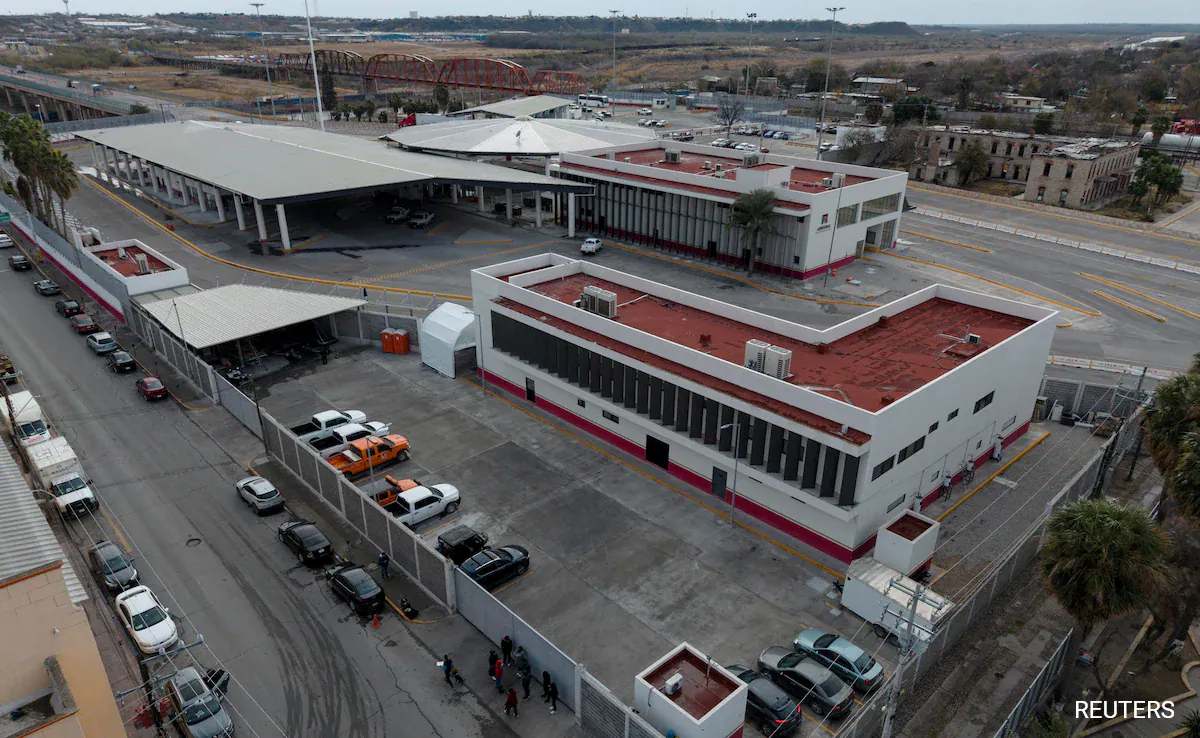More News
Mexico Prepares Shelters For Potential Deportation Surge From U.S.
By Benjamin Abioye

In response to US President Donald Trump’s plans for mass deportations, Mexican authorities have started constructing large tent shelters in Ciudad Juarez to accommodate thousands of potential deportees originally from Mexico.
This is part of a broader strategy by Mexico to prepare for the logistical and humanitarian challenges that could arise from the mass deportations of undocumented immigrants.
Enrique Licon, a municipal official overseeing the operation in Ciudad Juarez, described the effort as “unprecedented.” Workers are hurriedly setting up shelters just across the Rio Grande from El Paso, Texas, which are expected to be operational in a few days. These temporary shelters will offer essential services, including food, medical care, housing, and assistance with identity documentation.
The initiative, called “Mexico Embraces You,” isn’t limited to Ciudad Juarez. Plans are also in place to establish similar shelters in nine other northern Mexican cities. The government is also working to provide transportation for deportees, with a fleet of buses to return them to their hometowns.
Trump’s deportation plan, which is said to be the largest in US history, could involve removing millions of undocumented immigrants from the United States. However, experts suggest the operation would take years and come with major financial costs. An analysis from El Colegio de la Frontera Norte (COLEF) estimates that nearly 5 million undocumented Mexicans currently live in the United States, many of whom come from regions like Michoacán, Guerrero, and Chiapas, areas plagued by violence and poverty.
Despite Mexico’s preparedness efforts, immigration advocates and some officials are concerned about the country’s ability to handle the scale of deportations. With the reinstatement of the Migrant Protection Protocols (MPP), non-Mexican asylum seekers will be forced to stay in Mexico while their US cases are processed. This could lead to a significant bottleneck at the border, putting further strain on already limited Mexican resources.
Jose Luis Perez, former director of migration issues for Tijuana, expressed concerns about Mexico’s readiness to handle the situation. “With the cancellation of CBP One and deportations, the government isn’t coordinated to receive them,” he said. His criticism was met with backlash, and Perez was dismissed, a move he believes was retaliation for his remarks.
Rosa Icela Rodriguez, Mexico’s Interior Minister, reaffirmed the government’s commitment to supporting deported Mexicans. “Mexico will do everything necessary to care for its compatriots and will allocate whatever is necessary to receive those who are repatriated,” she stated.
However, the economic impact of the sudden influx of deportees remains a pressing issue. Mexico is already grappling with slow economic growth, and border cities could face instability as they struggle to accommodate large numbers of returnees. Wayne Cornelius, an expert at the University of California, San Diego, warned that many towns heavily depend on remittances from undocumented workers in the United States. Losing this source of income could lead to “serious economic disruptions.”
As preparations continue in Ciudad Juarez, soldiers are building industrial kitchens to provide meals for deportees near a site where Pope Francis once prayed for migrants. The looming question is whether Mexico can effectively absorb the potentially large number of returnees without destabilizing its communities.
The evolving situation reflects the deep human and logistical challenges of mass deportations, affecting not just policy but the lives of people on both sides of the border.
Send Us A Press Statement Advertise With Us Contact Us
And For More Nigerian News Visit GWG.NG













